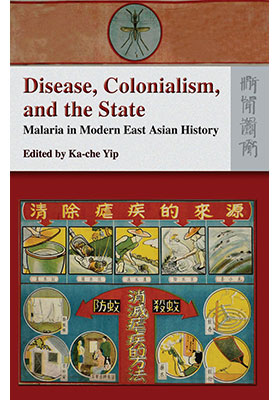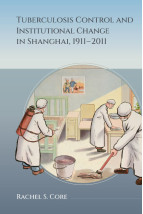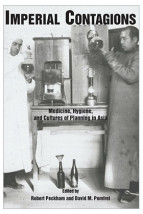Disease, Colonialism, and the State
Malaria in Modern East Asian History
(疾病、殖民主義和國家:瘧疾在近代東亞史)
ISBN : 978-962-209-587-8
May 2009
172 pages, 6″ x 9″
- HK$295.00
Ebooks
Studying malaria in modern East Asia in the context of the global history of the disease, this book fills an important gap in our understanding of the cultural, social, economic, and political dimensions of the relationship between malaria and human society in a region which has often been neglected by historians of the disease.
The authors examine the development and consequences of various anti-malaria strategies in Hong Kong, Okinawa, Taiwan, mainland China, and East Asia as a whole. The British and Japanese colonial models of disease control are explored, as is the later American technological model of DDT residue spraying, promoted by the Rockefeller Foundation which played a significant role in the global anti-malaria campaign and the development of public health in Asia.
In the post- World War II period, the use of DDT and international political and economic interests helped to shape anti-malaria policies of the Nationalist government in Taiwan. In mainland China, the Beijing government’s mass mobilization and primary health care model of anti-malaria control has given way to new strategies as recent changes in the health care system have affected anti-malaria efforts and public health developments.
This book illuminates an important and largely unexplored dimension of the history of malaria: the interplay of the state (colonial or sovereign), international interests, new medical knowledge and technology, changing concepts of health and disease, as well as local society in the formulation and implementation of anti-malaria policies. It will be of interest to historians of colonialism, medicine and public health, Asia, as well as health and social policy planners.
“This well-written book contains a vast amount of scholarly information and makes a considerable and important contribution to our understanding of the interactions between colonialism and malaria not only in South East Asia but also elsewhere.” —Professor Frank Cox, London School of Hygiene and Tropical Medicine
“These well researched and thoughtfully argued essays demonstrate dramatically why history matters when assessing public health policies, past and future. By looking closely at the various strategies employed against malaria by twentieth-century East Asian governments, both colonial and sovereign, and by assessing the effect of various tactics in different historical and local circumstances, these essays not only challenge simple paradigms but also add significantly to the knowledge base upon which modern anti-malarial efforts must ultimately depend. This book will be of great value to both historians and health officers.” —James C. Mohr, Distinguished Professor of History and Philip H. Knight Professor of Social Science, History Department, University of Oregon





